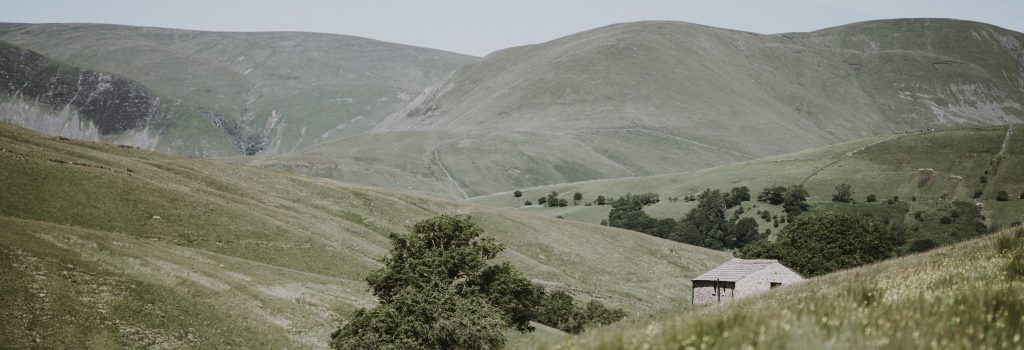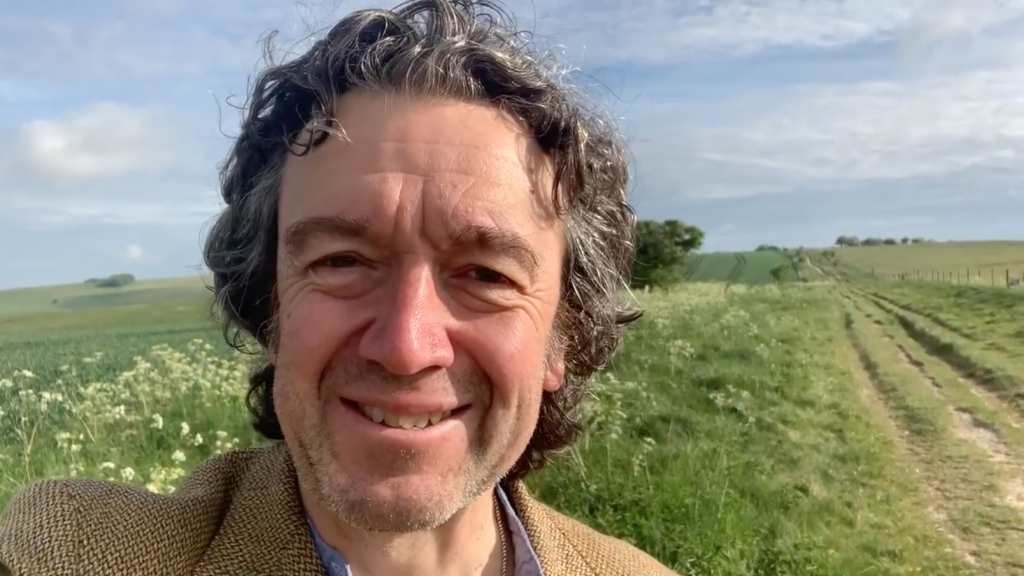
Modernity’s Mistake
In this short meditation on place and identity, Andrew Rumsey explores the dislocation human beings experience as modernity persuades us into thinking we can thrive apart from nature. Learning from Wendell Berry, he discovers that to flourish, a community needs to cherish its memories and build on its relationship with place. Taken from his latest book, English Grounds, this extract challenges us to think about the place of the Christian ethic in our consciousness and how this shapes our relationship with our country.
Hard sentences: learning from modernity’s mistake
Verging the A4, walking west and nature everywhere in debut. Limp rotors of horse chestnut leaf, ear-handles of lambs, sweetly outsized and sooty: the year is taking shape but still untested, tentative. Wild Chervil, which will flock this path shortly, has a shyness in unfurling. Its fronds first genuflect, before an ecstatic flowering into tiny white explosions – flung out yet restrained, on stems taut as fuse wire.
Life thus reins us in, even in spring. Wendell Berry, in his essay ‘The Work of Local Culture’, describes the containment necessary for an ecology to thrive: ‘the growth of the years must return – or be returned – to the ground to rot and build soil.’ This return applies as much to human society as agriculture, as Berry continues:
A human community, then, if it is to last long, must exert a kind of centripetal force, holding local soil and local memory in place.
The dominant force in modern, urban culture is, he argues, centrifugal – and Berry looks askance at its cancerous expansion – ‘eating its way outwards, like ring- worm’. Wendell Berry is a writer of singular genius, whose grounded Christian ethic has grown from a lifetime of farming the same Kentucky acres. His gift is to see human and natural culture as an organic whole, a spiritual compact – encapsulated by ‘culture’ itself, whose root words hold in tension the sense of natural growth and husbandry, Adamic delving in the soil (as in coulter, or ploughshare) and, tellingly, the honouring with worship still evident in our use of cult.
Traditional agricultural communities shackled most members to the soil with a toiling gravity still present when my mother began teaching in Lincolnshire villages in the late 1940s. Stone-picking and other, equally back-breaking tasks tugged pupils to the fields, bringing mass seasonal absence. Industrialization and its corollaries burst these communities like a seed head, scattering labouring classes into the towns and leaving those who remained oddly shiftless – unless, like my grandfather, they too mechanized and mobilized.
Modernity’s mistake was to dupe us into believing we could liberate ourselves from the natural world and still flourish: a lesson we are having to relearn now – in ‘hard sentences’, as the Psalms put it. We cannot contract out of our skin or away from the soil, although culture always changes, as each paradigm drifts. Having lived with high personal mobility and low remote connection, we are now hastened into the opposite – broadcast beyond recognition, but at the same time rooted anew in one place, schooled again in the names of the creation, like children of Eve. Our footing, for now, is hesitant: lamb-like, yet hefting with every step.
Andrew Rumsey
Andrew Rumsey is Bishop of Ramsbury in the Diocese of Salisbury, a writer and musician. He is the lead bishop for church and cathedral buildings in the Church of England. His books include English Grounds (SCM Press, 2022), Parish: An Anglican Theology of Place (SCM Press 2017) and Strangely Warmed (Bloomsbury, 2010). Follow him on Twitter at @RevAndrewRumsey.

Notes
The Work of Local Culture, Wendell Berry
Photo: Annie Spratt, Unsplash
If you found this meaningful, you can explore more content like it by subscribing to Together for the Common Good on Substack.
